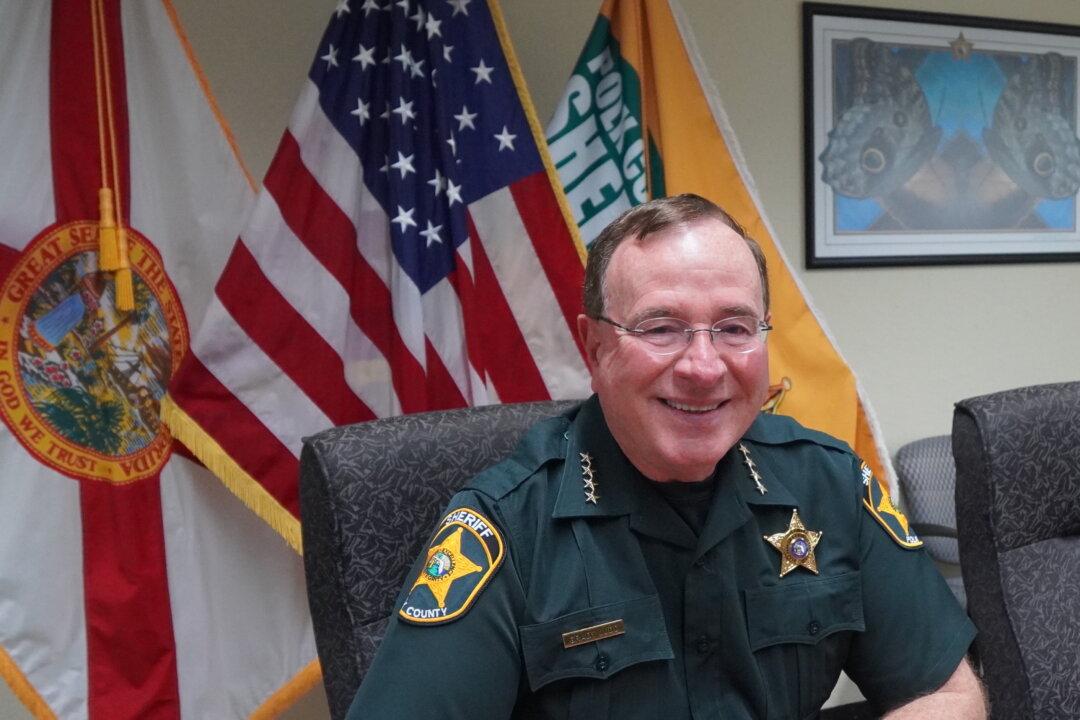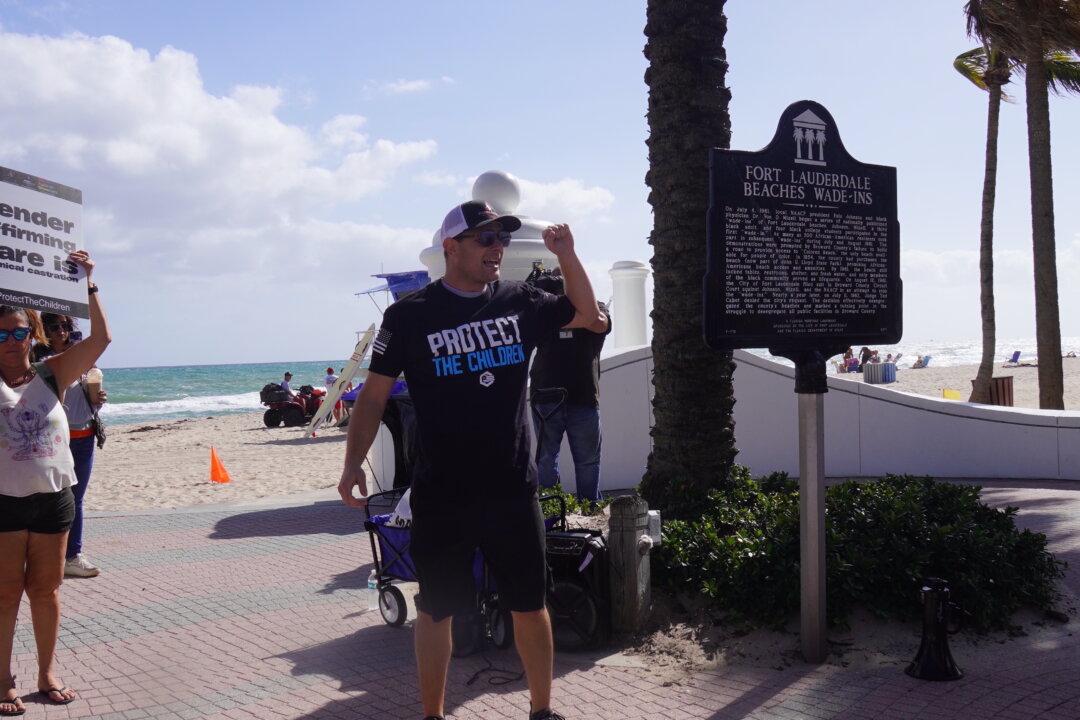He’s known as “America’s Toughest Sheriff,” but Sheriff Grady Judd of Polk County, Florida, said he’s “tougher on himself” than anyone he has ever arrested.
“I hold myself to a higher standard,” Judd said in a recent interview at the Polk County Jail. “I always said that I never wanted to do anything that would embarrass my Mama, my wife, or my children.”




